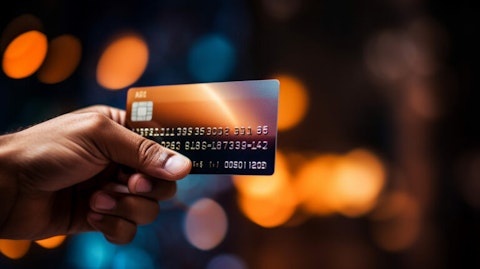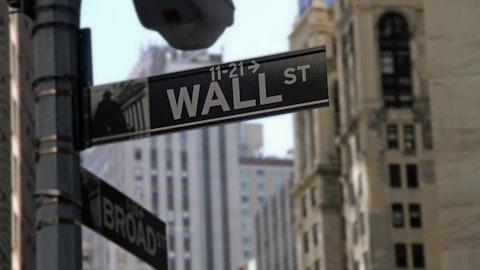Credit cards can be a valuable financial tool when used wisely, offering convenience, rewards, and the ability to build credit. However, maxing out your credit card – spending up to or near your limit – can lead to serious financial repercussions that may affect your credit score, financial stability, and future opportunities. Let’s explore why avoiding this practice is crucial and how it can shape your financial future.

A close-up of a hand holding a credit card, representing the companies multi-level payment services.
Credit Utilization Rate and Its Impact on Your Credit Score
One of the most immediate consequences of maxing out your credit card is the impact on your credit utilization ratio, which is the percentage of your total credit limit that you are using. This metric is a key factor in determining your credit score, accounting for up to 30% of the score calculation in many models.
When you max out your card, your utilization ratio approaches 100%, signaling to creditors that you might be over-reliant on credit. A high utilization ratio can significantly lower your credit score, making it harder to qualify for loans, mortgages, or other forms of credit with favorable terms.
To maintain a healthy credit score, it’s generally recommended to keep your utilization ratio below 30%. Avoiding maxed-out balances ensures a more positive reflection of your credit habits.
Higher Interest Payments Lead to Debt Cycles
Maxing out your credit card doesn’t just hurt your credit score; it can also strain your finances through higher interest payments. Most credit cards have high interest rates, especially if you carry a balance.
When your balance is near the credit limit, the interest charged on that amount grows substantially, making minimum payments ineffective at reducing your debt. This creates a cycle where interest charges compound, perpetually owing more than you can comfortably pay off.
Over time, this cycle becomes increasingly difficult to break, leading to a debt spiral that can consume your disposable income and force you to delay or forgo other financial goals.
Increased Risk of Credit Card Debt Delinquency
Carrying a maxed-out credit card balance significantly increases the risk of falling behind on payments. Research indicates that borrowers with high credit utilization rates are more likely to miss payments, which can quickly escalate into delinquency. When you’re already stretched thin financially, even a minor unexpected expense can make paying your credit card bill on time impossible.
Missing payments can lead to late fees, higher interest rates, and derogatory marks on your credit report, worsening your financial situation. Avoiding high credit utilization ensures you have more flexibility to manage your payments consistently and on time.
Psychological Toll of Maxed-Out Credit
Money troubles often extend beyond the numbers, affecting your mental and emotional well-being. Carrying a maxed-out credit card balance can lead to constant stress, anxiety, and even feelings of guilt or shame.
According to the Bank of Canada, half of credit card users pay only part of their balance every month, accruing interest and rolling over debt. This unpaid debt increases the risk of arrears on other credit products and signals rising household financial stress.
This mental strain can impair your ability to make sound financial decisions, potentially causing you to overlook better options or make choices that exacerbate your financial difficulties.
Addressing this issue begins with mindful spending and prioritizing debt repayment. Establishing a budget and financial plan can help you regain control over your finances and alleviate the psychological burden of credit card debt.
Limits Your Borrowing Capacity for Emergencies
A maxed-out credit card leaves you with little to no available credit for unexpected emergencies, such as medical expenses, car repairs, or urgent home maintenance. This can put you in a precarious position when you need immediate access to funds.
Instead of relying on a fully utilized credit card, consider maintaining a financial safety net through alternatives like a line of credit from a reputable lender such as Fora. A personal Line of Credit is a flexible credit option that lets you borrow, repay, and borrow again as needed, up to your available credit limit. Additionally, finance and budgeting tips can help you better prepare for emergencies without overextending your credit.
Planning ahead ensures you have the resources to handle crises without compounding your financial challenges.
Impact on Future Financing Options
When evaluating loan applications, lenders scrutinize your credit card balances as part of your overall financial profile. Maxed-out credit cards are a red flag, signaling potential financial instability and a higher risk of default. This perception can result in higher interest rates on loans or, in some cases, outright denial of credit applications.
Lenders prefer borrowers who demonstrate responsible credit management for major financial milestones, such as buying a home or financing a car. Keeping your credit card balances low shows that you are financially disciplined and less reliant on credit, making you a more attractive candidate for competitive loan offers.
By avoiding maxed-out cards, you protect your current financial health and set yourself up for success in future endeavors.
Conclusion
Maxing out your credit card might seem convenient at the moment, but the long-term repercussions can be financially and emotionally damaging. From hurting your credit score and increasing interest payments to limiting your borrowing capacity during emergencies, the effects of high credit utilization extend far beyond the immediate balance.





